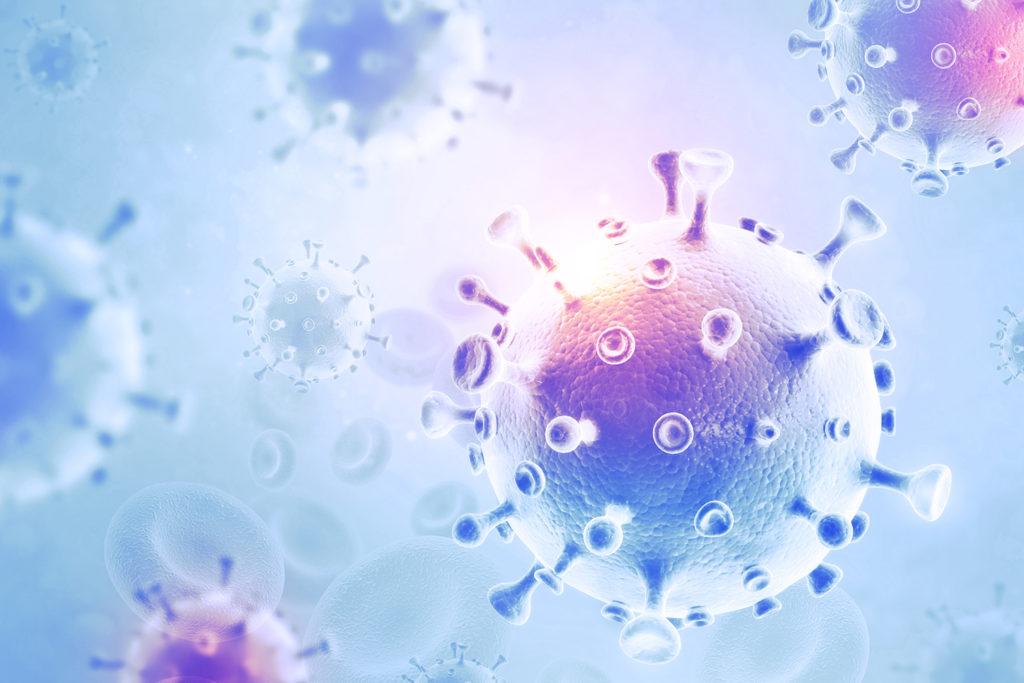Circulating Tumor Cell Test (CTC)
Circulating Tumor Cell Test (CTC)
- Cancer Risk Test
Health Check-Up at IntelliHealthPlus Clinic, Bangkok
Circulating tumor cell test are a type of blood test that detects cancer cells in the bloodstream. These tests are used to monitor the progression of cancer, assess the effectiveness of cancer treatment, and potentially detect the presence of cancer before symptoms develop.
CTC tests work by identifying and isolating cancer cells in a patient’s blood sample. The cells are then analyzed for genetic mutations or other biomarkers that can help doctors determine the type and stage of cancer. This information can be used to guide treatment decisions and monitor the effectiveness of therapy over time.
CTC tests are most commonly used in the management of certain types of cancer, such as breast, prostate, and colorectal cancer. They may also be used in the diagnosis of cancer, particularly in cases where a biopsy is not possible or the results of a biopsy are inconclusive.
What is involved in a Circulating Tumor Cell Test?
The test involves the collection of a blood sample from the individual, usually through a standard blood draw. The blood sample is then processed in a laboratory to isolate and identify CTCs, which are tumor cells that have shed into the circulation.
The isolation and analysis of CTCs typically involve various techniques, such as immunological methods or microfluidic technologies, which can specifically capture and separate CTCs from other blood components. Once isolated, the CTCs can be examined under a microscope or subjected to molecular analysis to evaluate their characteristics, including their quantity, morphology, genetic mutations, or expression of specific markers. This information provides insights into the presence of cancer, disease progression, treatment response, and the potential for metastasis.
A CTC test offers valuable information about the tumor’s biology, potential therapeutic targets, and prognosis, contributing to personalized treatment approaches and clinical research in the field of oncology.
What is tested in a Circulating Tumor Cell Test:
In a Circulating Tumor Cell (CTC) Test, healthcare professionals look for several key characteristics and markers associated with the detected CTCs. The specific features examined may vary depending on the purpose of the test and the type of cancer being evaluated. Here are some of the aspects they commonly assess:
The number of CTCs present in the blood sample can provide information about the tumor’s aggressiveness, potential for metastasis, and disease progression.
The physical appearance and structure of CTCs, including their size, shape, and cellular features, can offer insights into their origin and potential behavior.
Genetic analysis of CTCs can identify specific mutations or genetic alterations that are characteristic of the primary tumor. This information can guide treatment decisions, especially in cases where targeted therapies are available.
CTCs may express specific biomarkers or proteins that are associated with the type of cancer being evaluated. The presence or absence of these markers can help determine the cancer subtype and provide information about potential treatment options.
EMT is a process by which cancer cells acquire properties that promote invasion and metastasis. CTCs undergoing EMT may exhibit changes in their molecular profile, and their detection can indicate an increased risk of cancer spread.
By examining these aspects, healthcare professionals gain valuable insights into the characteristics and behavior of CTCs, which can guide treatment decisions, monitor treatment response, predict prognosis, and assess the risk of metastasis. The information obtained from the CTC Test helps in developing personalized treatment strategies and improving patient outcomes in the field of oncology.
Benefits of Circulating Tumor Cell Test:
The Circulating Tumor Cell (CTC) Test offers several important benefits in the field of cancer diagnosis, treatment, and monitoring. Some of the key advantages include:
1. Early Detection and Monitoring:
The CTC Test allows for the early detection of cancer cells that have entered the bloodstream, even before the development of visible tumors or symptoms. Early detection increases the chances of successful treatment and improved patient outcomes. Additionally, the test can be used to monitor disease progression and treatment response over time, providing valuable information for adjusting treatment strategies.
2. Prognostic Value:
The presence and characteristics of CTCs can provide insights into the prognosis of cancer patients. Higher numbers of CTCs or the presence of specific markers associated with aggressive disease may indicate a higher risk of metastasis and poorer prognosis. This information helps healthcare professionals in making informed decisions regarding treatment options, intensity of treatment, and follow-up care.
3. Personalized Treatment Approaches:
The analysis of CTCs can reveal genetic mutations or alterations specific to the tumor cells. This information enables the identification of potential therapeutic targets and the selection of personalized treatment approaches, such as targeted therapies or immunotherapies. By tailoring treatment based on the individual’s tumor characteristics, the CTC Test can enhance treatment efficacy and minimize unnecessary treatments.
4. Monitoring Minimal Residual Disease:
Following surgical resection or completion of initial treatment, the CTC Test can be used to detect and monitor minimal residual disease, which refers to the presence of small amounts of cancer cells that may remain in the body. Monitoring residual disease helps identify potential relapse or recurrence at an early stage, allowing for timely intervention and improved patient outcomes.
Overall, the CTC Test offers valuable information about the presence, behavior, and characteristics of tumor cells in the bloodstream. It contributes to personalized treatment decisions, disease monitoring, and research advancements, ultimately improving patient care and outcomes in the field of oncology.
Signs you may need a Circulating Tumor Cell Test:
The decision to undergo a Circulating Tumor Cell (CTC) Test is typically made by healthcare professionals based on individual circumstances and medical history. However, certain signs and factors may suggest the need for a CTC Test. These include:
If you have been diagnosed with cancer or if there is a suspicion of cancer based on symptoms, imaging studies, or other diagnostic tests, a CTC Test may be considered. It can provide additional information about the presence, characteristics, and behavior of tumor cells in your bloodstream, aiding in the diagnosis and management of cancer.
If you are undergoing cancer treatment, such as chemotherapy, targeted therapy, or immunotherapy, a CTC Test may be recommended to monitor treatment response. By analyzing CTCs over time, healthcare professionals can assess the effectiveness of the treatment and make necessary adjustments to optimize outcomes.
If there is a concern about the potential spread or metastasis of cancer, a CTC Test can provide insights into the risk of metastasis. Higher numbers of CTCs or specific characteristics of CTCs may indicate an increased likelihood of cancer cells spreading to other parts of the body.
In certain cancer types, the presence of CTCs and their characteristics can provide valuable prognostic information. If you have been diagnosed with cancer and want to better understand your prognosis, a CTC Test may be considered to assess the risk of disease progression, recurrence, or poor outcomes.
It’s important to note that the decision to undergo a CTC Test should be made in consultation with your healthcare professional or oncologist, who will consider your specific medical history, symptoms, and individualized risk factors. They will determine the appropriateness and potential benefits of the test based on your unique situation.
How often should you have a Circulating Tumor Cell Test?
The frequency of CTC tests depends on the individual’s medical history and the type and stage of cancer they have. Generally, CTC tests are used in monitoring cancer progression and treatment response, so the frequency may be determined by the treating physician based on the specific needs of the patient.
How long does a Circulating Tumor Cell Test take?
The time required to perform a CTC test may vary depending on the specific test and laboratory conducting the analysis. Generally, a CTC test involves collecting a blood sample and processing it to isolate and count the number of CTCs present. The processing time may range from a few hours to a few days, and the overall time for receiving test results may take several days to a few weeks.
Who should get a Circulating Tumor Cell Test?
CTC tests are typically reserved for people who have been diagnosed with certain types of cancer, to monitor disease progression or response to treatment. However, in some cases, CTC tests may also be used in conjunction with other diagnostic tests to help detect the presence of cancer or assess an individual’s overall cancer risk.
Frequently Asked Questions:
What is the Circulating Tumor Cell Test used for?
How accurate is the Circulating Tumor Cell Test?
Can the Circulating Tumor Cell Test be used to diagnose cancer?
Does a positive Circulating Tumor Cell Test mean I have cancer?
Why Us..
Health Check-Ups at IntelliHealthPlus Clinic By StemCells21
FREE CONSULTATION
Fast Track
1-2 Days Test Results
Health Check-ups at IntelliHealth+
At IntelliHealthplus Clinic, we believe in the importance of proactive healthcare and empowering our patients to take control of their health.
Our health check-up package provides valuable insights into your health status, and our team of experienced physicians will work with you to develop a personalized plan to optimize your health and well-being.
In our practice we apply evidence-based methods that have been practiced and refined for over 10 years in our operations, offering advanced techniques for treating various conditions.
If you would like to find out more or speak to one of our specialist contact us today to book your FREE consultation.
Book a FREE Consultation Now
IH+ Contact Form
Contact our international team of medical professionals with language services available in English, Thai, Arabic, Chinese, Spanish, and Russian.
Please indicate your preferred language and we will do our best to accommodate your request.


